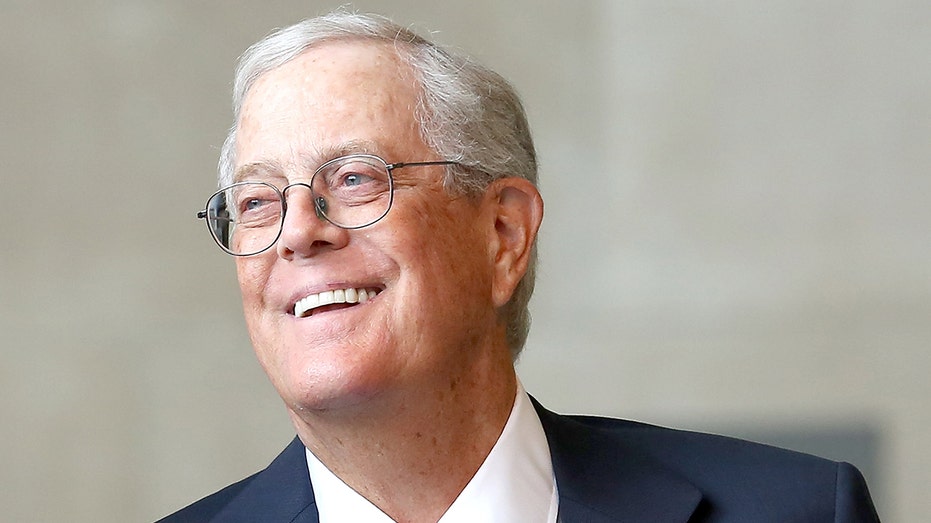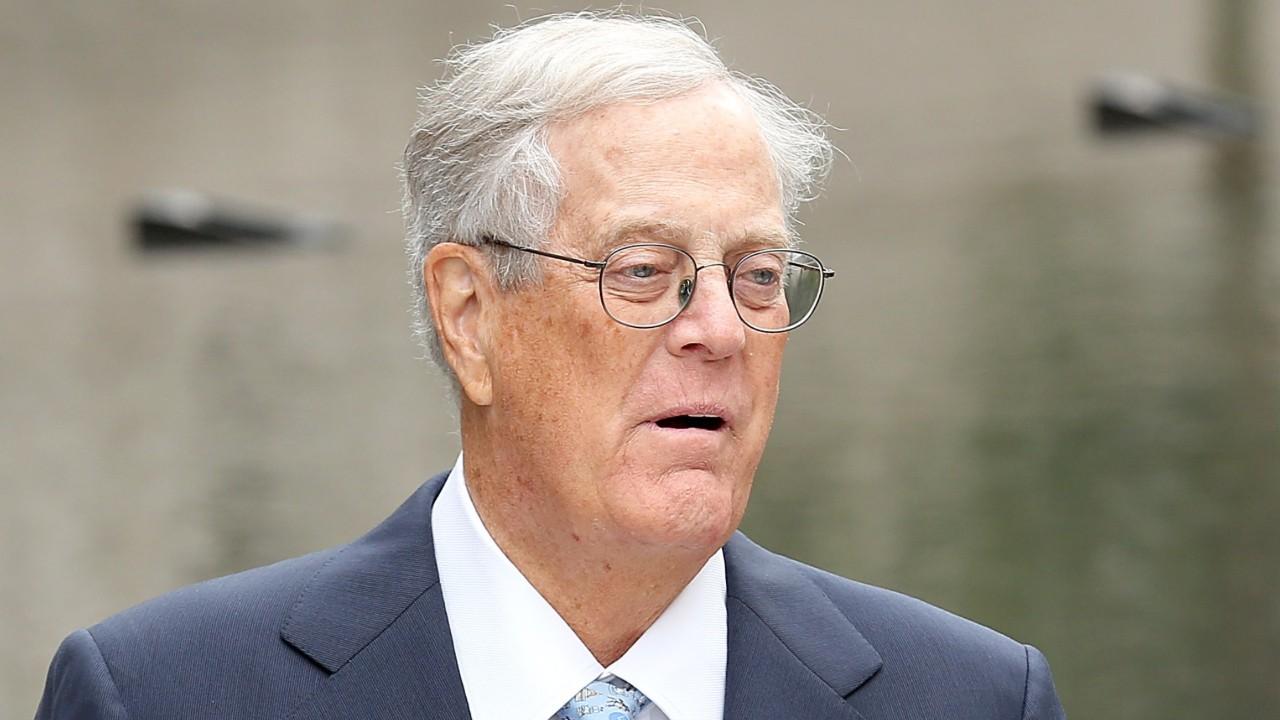The Koch fortune: A look inside the brothers' wealth and business
Estimates place the fortune of David Koch, whose family said he died Friday, somewhere between $42 billion and $50.5 billion.
How does someone make that much money?
Until last year, Koch was the executive vice president of Koch Industries, the second-largest private company in the U.S. He reportedly held a 42 percent stake in the business.
Koch Industries employs close to 120,000 people in 50 countries, including about 65,000 people in the U.S. Its subsidiaries include oil company Flint Hills Resources, paper company Georgia-Pacific and manufacturer Guardian Industries, along with various other engineering and chemical firms.
The company says it brings in more than $100 billion in revenue each year and reinvests 90 percent of earnings back into the company.
David’s brother, Charles Koch, is the chairman and CEO of the business. His net worth is $42.5 billion, according to Forbes.
The brothers’ leadership grew Koch Industries into the massive company it is today. Their father, Fred, founded the company that would become Koch Industries in 1940, using an oil refining process he developed.
In the late 1960s, Charles took over as head of the company after their father’s death. David, a chemical engineer, joined the company in 1970 as a technical-services manager and was in charge of his own New York-based division within a decade.
During that time, the company expanded, acquiring a number of oil and real estate assets. In the late ‘80s, it built a pipeline from Corpus Christi, Texas, to the San Antonio, Austin and Dallas-Fort Worth areas.
The company touts its “market-based management” it said has allowed its leadership to predict customer needs and move to meet them.
Despite its massive growth, things haven’t always gone smoothly for the company. In the 1980s and ‘90s, Charles and David were embroiled in a legal feud with their other brothers, William and Frederick, over leadership and ownership of the company. William is the founder and CEO of the energy company Oxbow.
Koch Industries also faced regulatory action in the ‘90s over pipelines. Charles and David responded by upping their efforts to meet regulations, as well as their lobbying efforts.
All that wealth has allowed the brothers to become active and influential political donors. Through their Americans for Prosperity foundation, they organized hundreds of wealthy people to back conservative causes and politicians.
Two groups at the heart of the Koch brothers’ network donated a combined $100 million to political races in 2014. In 2015, the brothers said they intended to spend nearly $750 million on politics.

David H. Koch attends the unveiling of the David H. Koch Plaza at the Metropolitan Museum of Art on Sept. 9, 2014, in New York City. (Paul Zimmerman/WireImage, FILE)
Federal Election Commission reports show the brothers continued donating to Republican candidates, committees and conservative-leaning outside groups after that. Charles donated at least $3.5 million during the 2016 campaign cycle, and David donated at least $697,000. Last year, a network of groups affiliated with the brothers said it would spend more than $400 million for the midterm election cycle.
Charles and David have also given to numerous philanthropic causes. Over the course of his life, David donated more than $1.2 billion to arts groups, hospitals and museums. Charles said he has also given more than $1 billion to various causes, with education being one focus.
“The significance of David’s generosity is best captured in the words of Adam Smith, who wrote, ‘To indulge our benevolent affections, constitutes the perfection of human nature,’” Charles Koch said after his brother’s death.




















